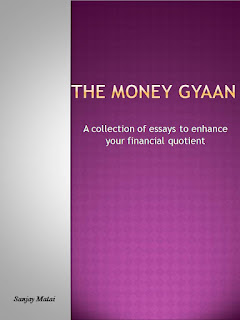Life is uncertain. Emergencies can happen to anyone, anytime, anywhere.
So, while we would like to hold on to our investments till maturity, sometimes we may have to opt for early encashment.
This may, however, either be permitted or not permitted.
And even if premature closure is allowed, there could be a penalty involved.
Thus, the most appropriate investment(s) to offload would be the one(s) where the penalty implications are nil or minimal.
As such, let us look at the rules and regulations with respect to premature closure of the various assets that we typically own.
Savings Account : No restriction. No penalty.
Post Office Recurring Deposit : Permitted only after 3 years. And only savings account rate would be paid as interest. (One withdrawal as a loan permitted after 1 year)
Post Office Time Deposit : Permitted only after 6 months. Penalty for premature closure either savings account rate (for closure within a year) or 1% less rate than comparable tenure time deposit (for closure after 1 year).
Post Office Monthly Income Scheme : Permitted only after 1 year. And there is a penalty of 2% (for 1 to 3 years) or 1% (after 3 years).
Public Provident Fund (PPF) : Not permitted. Though part borrowing / part withdrawal allowed from 3rd year onwards.
National Savings Certificate (NSC) : No premature encashment.
Senior Citizen Savings Scheme : Permitted only after 1 year. And there is a penalty of 1.5% (up to 2 years) or 1% (after 2 years).
Kisan Vikas Patra : Permitted only after 2.5 years. You will get a lower rate depending on the tenure completed.
Bank Fixed Deposit : Permitted. But you will get a lower rate for the tenure completed. Also, there may be a penalty.
Bank Recurring Deposit : Permitted. Terms vary from bank to bank.
Company Fixed Deposit : Normally permitted after 6 months. High penalty payable.
Non Convertible Debentures (NCDs) : Normally listed on the exchange. But getting a buyer and at the right price likely to be difficult.
GOI Savings Bonds : Not permitted.
Capital Gains Tax Exemption Bond : Not permitted.
Tax Free Bonds : Normally listed on the exchange. But getting a buyer and at the right price could sometimes be difficult.
Shares : Permitted. No penalty.
Physical gold : Permitted. No penalty.
Insurance (Traditional plans) : Permitted after 3 years. But the surrender charges can be quite steep.
Unit Linked Insurance Plans (ULIPs) : Permitted after 5 years. No penalty. (Closure before 5 years permitted with penalty, but money is returned only after 5 years).
Debt / Gilt mutual funds (medium and short term) : Permitted. There is likely to be an exit load if redeemed before a specified period. Nil, thereafter.
Debt / Gilt mutual funds (ultra short term and liquid funds) : Permitted. Typically Nil exit load (with a few exceptions).
Fixed Maturity Plans (FMPs) : Listed on the exchange. But getting a buyer and at the right price practically very difficult.
Monthly Income Plans (MIPs) / Balanced Funds : Permitted. There is likely to be an exit load if redeemed before a specified period. Nil, thereafter.
Equity Funds / Global Funds : Permitted. There is likely to be an exit load if redeemed before a specified period. Nil, thereafter.
Equity Linked Savings Scheme (ELSS Funds) : Not permitted.
Gold ETF : Permitted. No penalty.
Gold Fund / Gold FoF : Permitted. There is likely to be an exit load if redeemed before a specified period. Nil, thereafter.
Pension Plans : Depends on the type of plan. If permitted surrender charges could be steep. Also, only 1/3rd amount may be returned with balance 2/3rd invested in an Annuity Plan.
National Pension Scheme (NPS) : Permitted without penalty. But only 20% money returned. Balance 80% invested in an Annuity Plan.
Annuity : Money not returned at all (except to the nominee under one of the options).
Employees Provident Fund (EPF) : Allowed on job change, without any penalty, if the new employer is not covered under PF Act. Part EPF withdrawal permitted for specific requirements.
Gratuity : Available only on quitting the job.
Property : Permitted. No penalty. In some cases, tax benefits claimed in earlier years could be reversed.
Commodity : Depends on the type of investment whether a mutual fund, a share or a derivative.
Capital Protection Schemes : Depends on whether it is Mutual Fund, Insurance Policy or NCD. In most cases, no capital protection on premature encashment.
Note:
1. These rules apply in most cases. However, there may be some exceptions to the same.
2. For mutual funds, the discussion pertains to open-ended funds only.
3. Premature closure may also result in a tax liability.
So, while we would like to hold on to our investments till maturity, sometimes we may have to opt for early encashment.
This may, however, either be permitted or not permitted.
And even if premature closure is allowed, there could be a penalty involved.
Thus, the most appropriate investment(s) to offload would be the one(s) where the penalty implications are nil or minimal.
As such, let us look at the rules and regulations with respect to premature closure of the various assets that we typically own.
Savings Account : No restriction. No penalty.
Post Office Recurring Deposit : Permitted only after 3 years. And only savings account rate would be paid as interest. (One withdrawal as a loan permitted after 1 year)
Post Office Time Deposit : Permitted only after 6 months. Penalty for premature closure either savings account rate (for closure within a year) or 1% less rate than comparable tenure time deposit (for closure after 1 year).
Post Office Monthly Income Scheme : Permitted only after 1 year. And there is a penalty of 2% (for 1 to 3 years) or 1% (after 3 years).
Public Provident Fund (PPF) : Not permitted. Though part borrowing / part withdrawal allowed from 3rd year onwards.
National Savings Certificate (NSC) : No premature encashment.
Senior Citizen Savings Scheme : Permitted only after 1 year. And there is a penalty of 1.5% (up to 2 years) or 1% (after 2 years).
Kisan Vikas Patra : Permitted only after 2.5 years. You will get a lower rate depending on the tenure completed.
Bank Fixed Deposit : Permitted. But you will get a lower rate for the tenure completed. Also, there may be a penalty.
Bank Recurring Deposit : Permitted. Terms vary from bank to bank.
Company Fixed Deposit : Normally permitted after 6 months. High penalty payable.
Non Convertible Debentures (NCDs) : Normally listed on the exchange. But getting a buyer and at the right price likely to be difficult.
GOI Savings Bonds : Not permitted.
Capital Gains Tax Exemption Bond : Not permitted.
Tax Free Bonds : Normally listed on the exchange. But getting a buyer and at the right price could sometimes be difficult.
Shares : Permitted. No penalty.
Physical gold : Permitted. No penalty.
Insurance (Traditional plans) : Permitted after 3 years. But the surrender charges can be quite steep.
Unit Linked Insurance Plans (ULIPs) : Permitted after 5 years. No penalty. (Closure before 5 years permitted with penalty, but money is returned only after 5 years).
Debt / Gilt mutual funds (medium and short term) : Permitted. There is likely to be an exit load if redeemed before a specified period. Nil, thereafter.
Debt / Gilt mutual funds (ultra short term and liquid funds) : Permitted. Typically Nil exit load (with a few exceptions).
Fixed Maturity Plans (FMPs) : Listed on the exchange. But getting a buyer and at the right price practically very difficult.
Monthly Income Plans (MIPs) / Balanced Funds : Permitted. There is likely to be an exit load if redeemed before a specified period. Nil, thereafter.
Equity Funds / Global Funds : Permitted. There is likely to be an exit load if redeemed before a specified period. Nil, thereafter.
Equity Linked Savings Scheme (ELSS Funds) : Not permitted.
Gold ETF : Permitted. No penalty.
Gold Fund / Gold FoF : Permitted. There is likely to be an exit load if redeemed before a specified period. Nil, thereafter.
Pension Plans : Depends on the type of plan. If permitted surrender charges could be steep. Also, only 1/3rd amount may be returned with balance 2/3rd invested in an Annuity Plan.
National Pension Scheme (NPS) : Permitted without penalty. But only 20% money returned. Balance 80% invested in an Annuity Plan.
Annuity : Money not returned at all (except to the nominee under one of the options).
Employees Provident Fund (EPF) : Allowed on job change, without any penalty, if the new employer is not covered under PF Act. Part EPF withdrawal permitted for specific requirements.
Gratuity : Available only on quitting the job.
Property : Permitted. No penalty. In some cases, tax benefits claimed in earlier years could be reversed.
Commodity : Depends on the type of investment whether a mutual fund, a share or a derivative.
Capital Protection Schemes : Depends on whether it is Mutual Fund, Insurance Policy or NCD. In most cases, no capital protection on premature encashment.
Note:
1. These rules apply in most cases. However, there may be some exceptions to the same.
2. For mutual funds, the discussion pertains to open-ended funds only.
3. Premature closure may also result in a tax liability.








